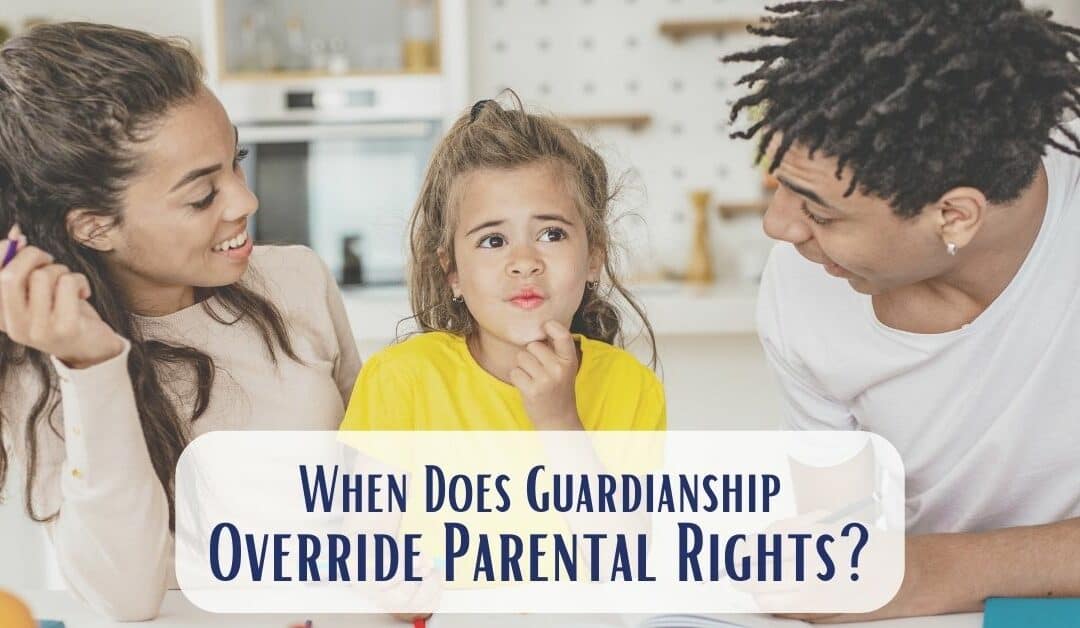Guardianship is a legal arrangement that gives an adult certain rights and responsibilities over a child. Depending on the situation, a court may grant this arrangement in many ways. In most cases, guardianship does not override parental rights. However, there are some instances where it does take precedence. Let’s explore when guardianship overrides parental rights in North Carolina.
Who Can Petition for Guardianship of a Child?
In North Carolina, any “interested person” can petition for guardianship of a child. An interested person is someone who has a legitimate interest in the child’s welfare. This person could be a grandparent, another relative, a family friend, or even a concerned citizen.
The court will only grant guardianship if it is in the child’s best interests. The court will consider several factors when making this determination, including the wishes of the parents, the child’s age and developmental needs, and any particular circumstances that may be present.
It is important to note that in North Carolina, parental rights can be terminated altogether by a court. Usually, this happens when there is evidence of abuse, neglect, or abandonment. If a court terminates parental rights, the guardian will have all of the rights and responsibilities of a parent. In other words, the guardian will be the child’s primary caregiver and decision-maker.
How Does Guardianship Work in NC?
To understand when guardianship overrides parental rights, it is first essential to understand what a guardianship arrangement entails. A guardianship can be temporary or permanent, and a court can choose one person or multiple people.
The guardian is responsible for making decisions on behalf of the child in areas such as education, healthcare, and financial matters. The guardian also usually has the right to spend time with the child and make decisions about their day-to-day care. In some cases, the guardian may even have the right to live with the child.
When Guardianship Overrides Parental Rights
There are some instances where guardianship does override parental rights in North Carolina. For example, when a court order grants guardianship to someone other than the child’s parent.
If a court grants guardianship to a grandparent of their grandchild, they would have authority over the child even if the parents still have parental rights. In some cases, a guardian may even receive custody of a child if a court determines it is in the child’s best interests. Some parents may choose to give up parental rights to a guardian. Some examples of instances when parents may choose a guardian or lose their parental rights include:
- Physical, mental, or emotional abuse by one or both parents
- Incapacitation or incompetence of one or both parents due to medical needs that prevent proper care of children. Examples could include hospitalization or severe depression.
- Substance abuse rendering one or both parents incapable of providing parental support
- Homelessness or other tricky financial situations where parents feel incapable of providing for the basic needs of their children
- Temporary situations where parents may need a temporary guardianship arrangement
- Criminality or incarceration of one or both parents
In most cases, guardianship does not override parental rights in North Carolina. Usually, even if someone has receives guardianship of a child, the parents will still have the right to make decisions about their care and wellbeing. Parent’s decision-making rights only end if a court terminates parental rights or gives the guardian complete custody of the child.
Guardianship when Parents Die
When one parent dies, the child’s other parent will automatically gain custody of the child unless they are also deceased. If both parents die, the court decides who will take custody of the child.
If the parents have a will stating who they want to be the guardian of any children, the court will usually agree with the parents’ decision.
Summing it Up
As you can see, there are several different scenarios where guardianship may or may not override parental rights in North Carolina. The best way to determine what will happen in your specific situation is to speak with an experienced guardianship attorney. They can help you understand your rights and options under North Carolina law.
We Can Help
Need help understanding guardianship and parental rights in North Carolina? Contact us at Cape Fear Law today for a free consultation. Our guardianship attorneys can answer all of your questions and help you determine the best course of action for your family.
Give us a call today or fill out our online form to get started. We look forward to speaking with you soon!

